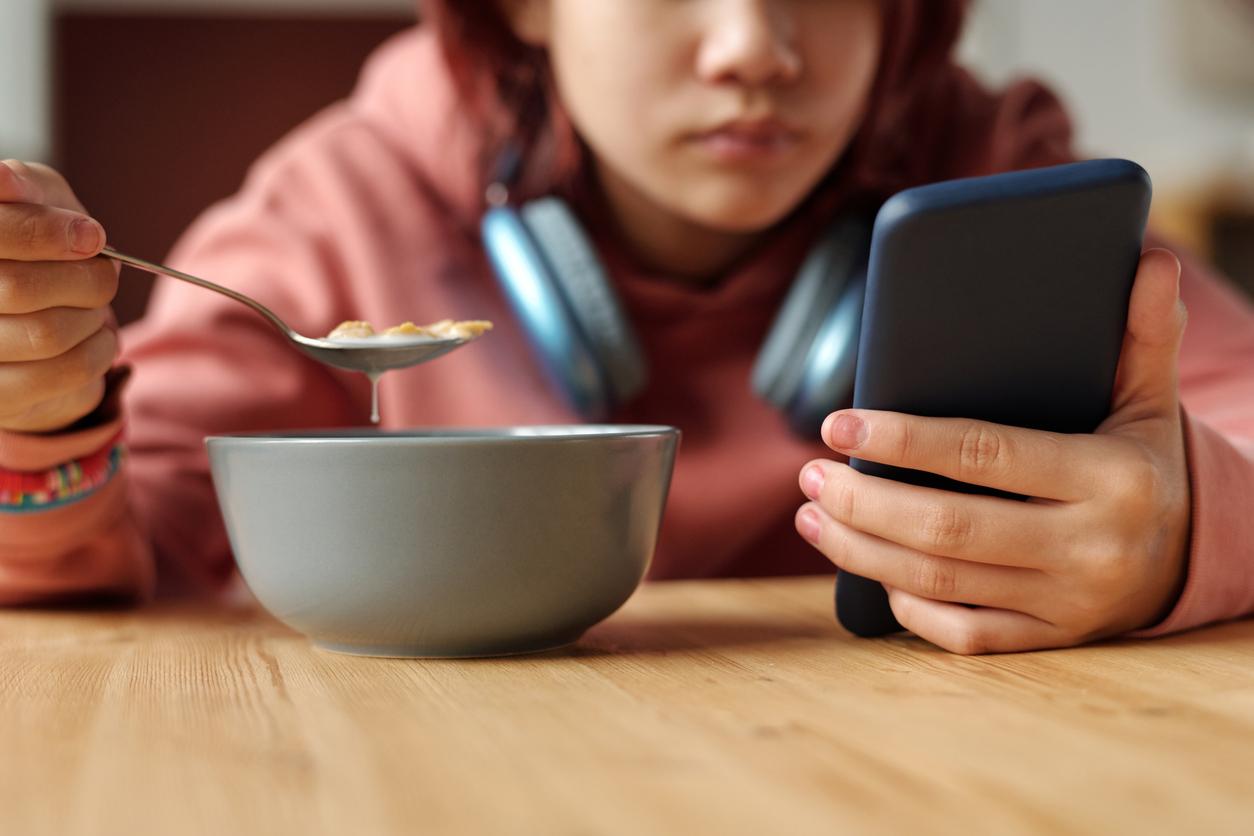Late snacks increase risk factors for chronic disease and disrupt hunger hormones.

Rather popcorn, chips or candy to accompany your evening movie? Either way, it would be better to give up the habit. Because snacking late promotes the emergence of chronic diseases, such as diabetes or other cardiovascular pathologies.
This association emerges from a small study presented at the SLEEP congress, which brought together the learned societies of sleep medicine, in Boston (United States) from June 3 to 7.
Two different time slots
8 healthy adults took part in this experiment. Nothing really rocket science in what was asked of them: these volunteers had to eat real meals three times a day as well as snacks twice. But fixed hours were imposed on them.
For 8 weeks, the participants spread their food intake between 8 a.m. and 7 p.m. Then they shifted their habits during the same period: the first meal was to be eaten at 12 o’clock and the last at 11 o’clock.
In order to restore the various biomarkers analyzed to their normal levels, a two-week break was observed between these two phases of the experiment. The researchers also made sure that, throughout the study, the volunteers got enough sleep. Blood tests and other examinations have been multiplied in order to analyze their evolution.
A healthier profile
“Changing your lifestyle is never easy, but making the effort to eat earlier in the day is worth it, since it helps prevent chronic health effects,” comments Kelly Allison, who presented this work. .
When meals are eaten early, the ghrelin surge occurs earlier. Conversely, the leptin peak occurs later … which prevents nighttime cravings.
By eating later, the volunteers assimilate the nutrients they consume less well. Researchers have found that the proportion of carbon dioxide produced in relation to the oxygen consumed increases. This means that fat is metabolized less and carbohydrates more absorbed. This mechanically increases fasting blood sugar.
Diabetes, cholesterol …
As a result, participants gained more weight when they ate late. Their cholesterol, insulin and blood sugar levels also skyrocketed. This was not the case when they ate their last meal before 7 p.m. These poor results reflect an increased risk of diabetes, but also cardiovascular disease that can lead to a heart attack or stroke.
“Nights that are too short affect weight and metabolism, because of nighttime snacking,” says Namni Goel, co-author of the study. Thanks to this new work, which takes sleep into account, we better understand the value of eating early. Taking inspiration from the British model would therefore be beneficial on one point: eating early is more beneficial for health. As long as you don’t snack during the day.
.

















